If you’re wondering about the typical fiberglass pool cost in Arkansas, several factors can influence the total investment necessary for your backyard oasis. The Natural State’s hot, humid summers and occasional winter cold snaps make durability a key consideration when choosing an inground pool. Fiberglass pool designs are an excellent option, built to withstand rapid temperature shifts. A smooth, non-porous surface will resist algae growth below and above the waterline—an essential benefit in Arkansas’ moisture-rich environment.
Beyond climate considerations, geography and property conditions can also impact Arkansas pool installation costs. In areas like Little Rock and Fayetteville, excavation challenges due to rocky or clay-heavy soil may require extra preparation. Rural Arkansas properties with expansive yards often offer more pool size and layout flexibility. Arkansas homeowners will also want to factor in local regulations and optional enhancements like pool heaters for extending the swim season, automatic covers for easy maintenance, and native landscaping plants that complement their surroundings’ natural beauty.
A fiberglass pool is more than a backyard upgrade—it’s a lifestyle investment. With the proper planning, you can create a personal oasis that fits your budget while providing years of enjoyment for family and friends.
What is the Average Cost of an Arkansas Fiberglass Pool Installation? Survey Says…
By conducting a 2025 survey of our independent dealers across the state, Thursday Pools compiled helpful data to give you an idea of the average cost of installing a fiberglass pool in Arkansas. If you’re just dipping your toes into initial research of fiberglass pool costs near you, you’ve come to the right place.
AVERAGE ARKANSAS FIBERGLASS POOL INSTALLATION BY SIZE
|
| Pool Type |
Small Fiberglass Pools |
Medium Fiberglass Pools |
Large Fiberglass Pools |
| Size Range |
Up to 26 ft Long or 400 ft² |
26 to 34 ft Long or 400 to 600 ft² |
35 ft and Longer or 600+ ft² |
| Average Cost |
$65,000 |
$90,000 |
$105,000 |
Average Cost of Popular Pool Models Installed in Arkansas
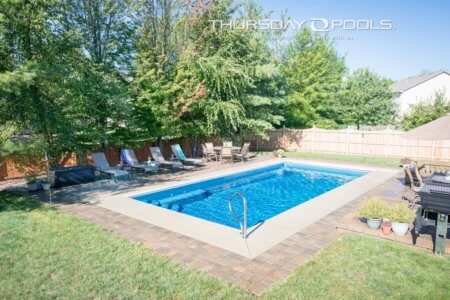
GOLIATH (12’ x 25’)
The Goliath can certainly live up to its name, and the high end of its six available sizes is the largest design in the Thursday Pools portfolio. However, the model’s most compact variant is excellent for tighter metro and suburban yards, packing in built-in entry steps and benches around an open swim lane for big fun in a smaller package.
According to our survey of independent Thursday Pool dealers in Arkansas, the standard installation of a Goliath or similar design less than 26 feet long and 400 square feet averages $65,000.
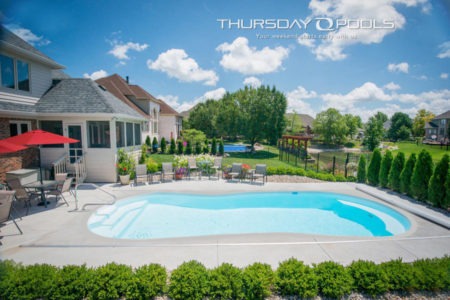
TITUS (14’ x 33’)
The mid-size Titus design features soft curves and mellow lines to help take the edge off a squared backyard—or after a tough day at work. Wide entry steps with built-in seating on one end and a full-length conversation bench at the other naturally bring people together with plenty of room to swim and exercise.
Our survey of independent Arkansas dealers says that standard installations of the Titus and similar mid-size designs between 26 and 34 feet long or 400 to 600 square feet cost, on average, $90,000.
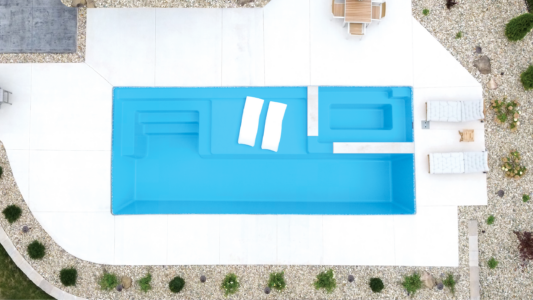
MACK DADDY (16’ x 36’)
The large and in-charge Mack Daddy is the pinnacle of fiberglass pool designs with something for everybody. The design is Thursday Pools’ first to feature a fully integrated spa with a spillway in addition to a spacious tanning ledge, another conversation area with entry steps and wraparound benches, and a flat-bottom-depth swim lane.
Larger yards in spacious and rural areas can easily accommodate big pools over 35 feet long and 600 square feet or more. Our independent dealers in Arkansas report customers pay an average of $105,000 for a standard installation of large fiberglass pool models.
Understanding Your Arkansas Yard
Arkansas’ diverse landscape means that soil conditions can vary across the state from one backyard to another. Suppose your property has heavy-clay or rocky soil, typical in areas like the Ozarks and Central Arkansas. In that case, excavation may require specialized equipment or additional labor, increasing installation costs. Sandy soil, often found in the state’s southern regions, may need reinforcement to prevent pool shifting over time.
Beyond soil type, the natural slope of your yard can also impact your pool’s installation. Homes built on hilly terrain may require extra grading or retaining walls to create a stable, level surface for the pool and surrounding decking. In more metro and suburban areas, where space can be tighter, accessibility challenges may arise with large equipment and delivering a one-piece fiberglass pool shell. Limited access through narrow streets or fenced-in lots may require crane rentals or other accommodations to ensure a smooth installation.
Consulting with a local professional pool installer will help you identify and plan for these potential challenges, ensuring your pool is securely installed and ready for years of enjoyment.
AVERAGE ADDITIONAL YARD-RELATED EXPENSES IN ARKANSAS
|
| Excavating Sandy Soil |
$575 |
| Excavating Expense Clay Soil |
$2,260 |
| Excavating Expense Rocky Soil |
$3,275 |
| Above Average Slope Requiring Extra Grading |
$2,700 |
| Average Cost for Limited Access Yards |
$3,550 |
Regulations: Arkansas Swimming Pool Barrier Requirements
When installing fiberglass pools in Arkansas, understanding local safety regulations is essential. While the Arkansas Department of Health does not regulate single-family residential pools, homeowners must still comply with state building codes and local ordinances regarding pool enclosures.
According to Arkansas’ building code, residential pools must have a barrier at least 48 inches (4 feet) high. The bottom of the barrier cannot be more than 2 inches above the ground to prevent small children or pets from slipping underneath.
Beyond statewide regulations, many local municipalities enforce additional requirements. For example, Springdale, Arkansas, mandates that private pools, hot tubs, and spas deeper than 24 inches must be fully enclosed by a fence or barrier at least 48 inches high. Gates and doors must be self-closing and self-latching. If the latch is less than 54 inches off the ground, it must be on the pool-facing side of the gate for added safety.
Because pool fencing requirements can vary by city and county, be sure to check with local pool professionals, municipalities, and homeowners associations for the most up-to-date information regarding local laws, ordinances, and policies regarding inground pools before installation. Proper planning ensures your pool meets safety standards while providing your family and neighbors peace of mind.
For a 300-foot linear-feet fence, our independent Arkansas dealers estimate homeowners can expect to pay an average of $1,975.
Optional Features and Add-Ons That Influence Fiberglass Pool Cost in Arkansas
Customizing your fiberglass pool with optional features and add-ons can take your backyard experience to the next level, turning your pool into a resort-style escape tailored to your lifestyle. While these upgrades aren’t required, they can improve convenience, enhance aesthetics, and maximize enjoyment for you and your family. Below are some of the most popular pool enhancements Arkansas homeowners choose, with average pricing data from our 2025 survey of Thursday Pools’ independent dealers across the state.
Comfort & Convenience Upgrades
Pool Heater Average Cost in Arkansas: $4,525
Enjoy an extended swim season by keeping your pool water at a comfortable temperature, even when the evenings get cooler.
UV Filter System Average Cost in Arkansas: $2,650
Minimize chemical use and keep your water crystal clear by eliminating bacteria and algae with a UV filtration system.
Pool Automation and Smart Control System Average Cost in Arkansas: $4,075
Control your pool’s temperature, filtration, and lighting from anywhere using a smartphone or tablet application.
Automatic Pool Cover Average Cost in Arkansas: $14,800
Improve safety, reduce evaporation, and keep your pool cleaner with a cover that opens and closes at the push of a button.
Non-Automatic Safety Pool Cover Average Cost in Arkansas: $3,850
A more affordable option for pool protection that still helps keep out debris and provides peace of mind.
Automatic Pool Cleaning and Vacuuming System Average Cost in Arkansas: $4,775
Spend less time skimming and scrubbing with a built-in system that helps keep your pool clear and inviting.
Pool Decking and Surrounding Aesthetic Enhancements
Poured-Concrete Patio (Approx. 1,200 sq. ft.) Average Cost in Arkansas: $6,625
Poured concrete is a cost-effective and durable choice for an approximately 8-foot-wide deck area around the pool. Concrete holds up well to Arkansas’ seasonal temperature shifts.
Paver Patio (Approx. 1,200 sq. ft.) Average Cost in Arkansas: $9,700
Create an elegant and slip-resistant pool deck with pavers. More affordable concrete pavers are a popular option, while natural stone, such as travertine, offers a high-end look but comes at a higher price. In Arkansas, brick and concrete pavers best withstand seasonal weather changes.
Surrounding Landscaping Average Cost in Arkansas: $3,750
Elevate your pool area with decorative rocks, trees, shrubs, and colorful flower beds to complement your outdoor space.
Water Features and Pool Aesthetics
Specialty Waterline Tile Average Cost in Arkansas: $3,950
Customize your pool’s look with decorative tile that adds an upscale, polished touch to the waterline.
LED Pool Lights Average Cost in Arkansas: $2,156.25 per light
Enhance nighttime swimming with energy-efficient LED lights in white or multi-color options for a dynamic effect.
Deck Jets Average Cost in Arkansas: $1,925 per jet
Add visual flair with graceful arcs of water that shoot from the pool deck into the water.
Bubblers Average Cost in Arkansas: $2,175 per bubbler
A playful and stylish addition, bubblers create small fountains in shallow areas of the pool to add visual appeal and gentle water movement.
Cascading Waterfalls Average Cost in Arkansas: $2,675
Incorporate a natural-looking waterfall feature for a relaxing, spa-like ambiance.
Recreation and Relaxation Features
Simple Pool Slide Average Cost in Arkansas: $4,925
Some families enjoy the fun of a slide with a straightforward, classic design, but Thursday Pools advises against pool slides due to safety concerns.
Deluxe Pool Slide Average Cost in Arkansas: $7,400
A taller, curvier option for those seeking a more thrilling experience. However, Thursday Pools does not encourage pool slides for safety reasons.
Diving Board (Type 1 Diving Pools Only) Average Cost in Arkansas: $3,450
Diving boards are only permitted on certified Type 1 diving pools, and even then, Thursday Pools does not recommend them for safety reasons. Pools with diving boards must meet specific depth and slope requirements for safe use.
*Thursday Pools strongly advises against pool slides and diving boards due to safety concerns. The inclusion of a diving board or slide with any fiberglass pool must be carefully reviewed by a licensed professional to ensure compliance with all local building codes, safety regulations, and manufacturer guidelines. Not all fiberglass pool models are suitable for diving or slide use. It is the responsibility of the homeowner and installer to ensure proper installation and usage. Always prioritize safety and consult a qualified expert before adding any diving or sliding feature to your pool.
Add-On Spa Average Cost in Arkansas: $7,100
Upgrade your backyard retreat with an attached spa beside your pool for a beautiful spillover effect.
Make a Splash: Turn Your Arkansas Backyard into a Personal Oasis
Investing in a fiberglass pool in Arkansas is a great way to create lasting memories with friends and family, beat the hot summer heat, and add lasting value to your home. Whether you’re in Little Rock, Fayetteville, Hot Springs, or a rural area with wide-open space, choosing the right pool size, features, and installation plan is key to maximizing your investment.
Because every installation is unique, the best way to get an accurate estimate is by speaking with a local independent Thursday Pools dealer in your area. They can assess your yard conditions, provide expert insights on excavation, accessibility, fencing, and site preparation, and help you choose a pool design and features to fit your budget.
Ready to take the next step?
Request a Consultation
hbspt.forms.create({
portalId: “42700”,
formId: “64b89118-0aba-4872-81b8-c490540629bd”,
region: “na1”
});
Thursday Pools® manufactures fiberglass pool shells and does not install pools. Pools are installed by locally owned independent dealers. Consumers should consult a local independent dealer for the most accurate and updated information based on the unique conditions of their region and property.
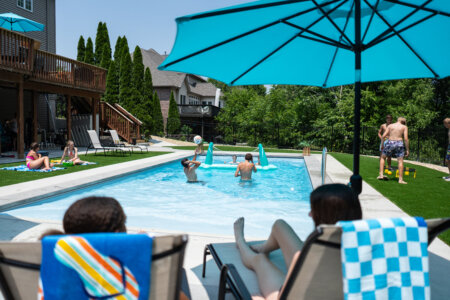
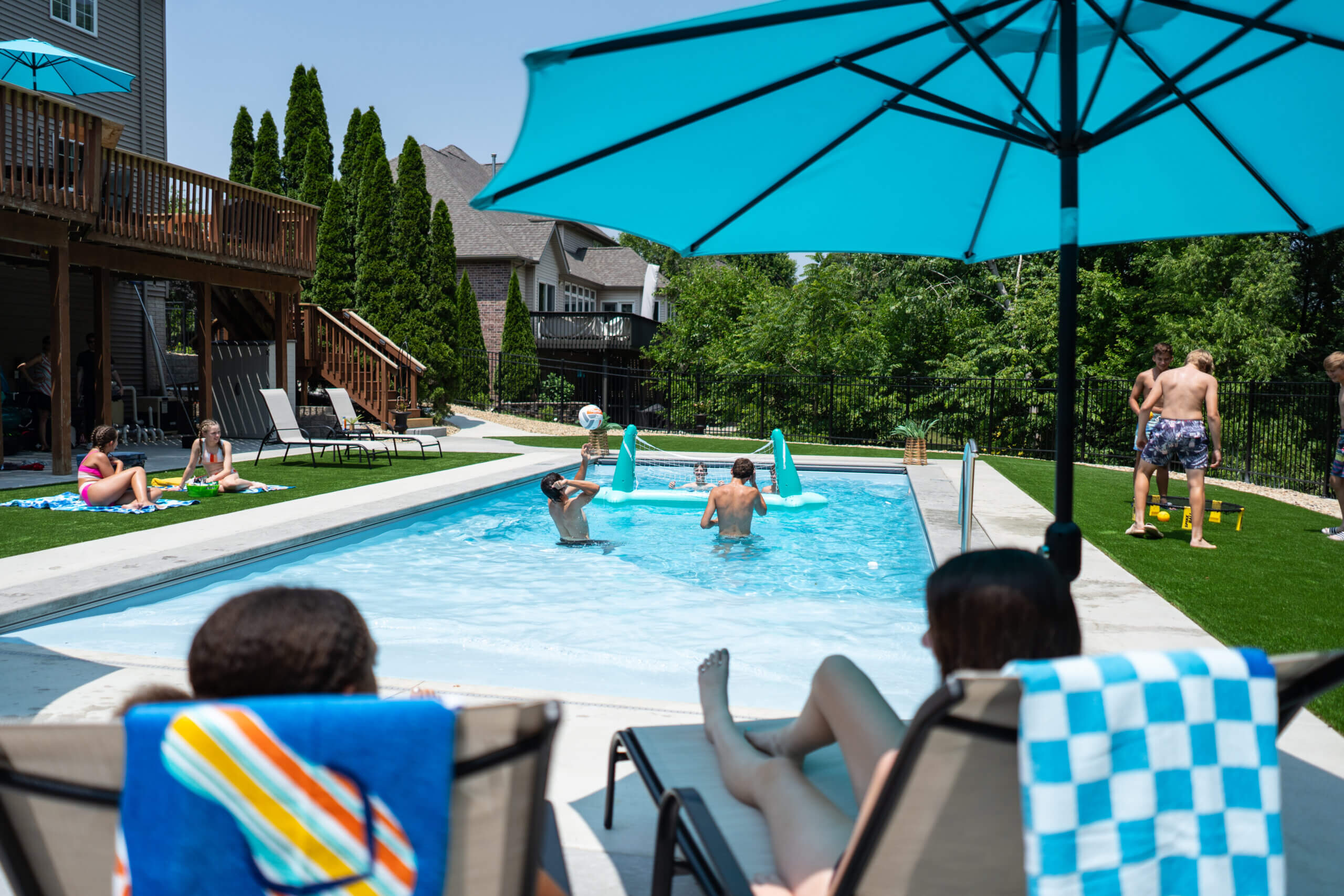
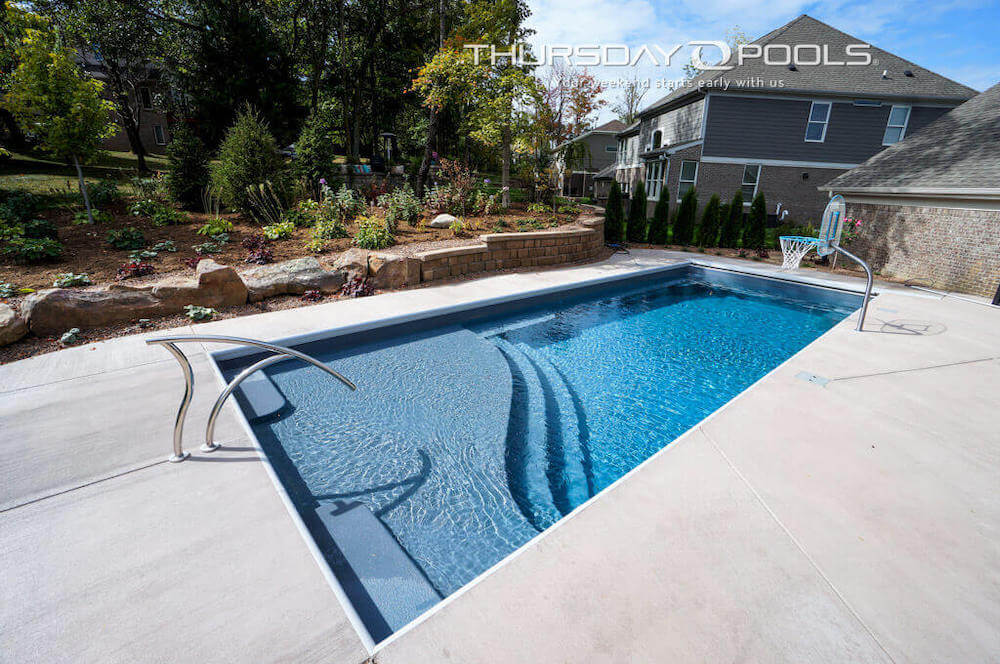
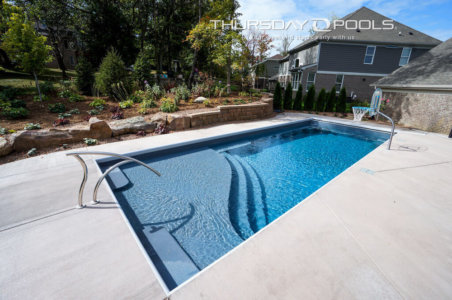
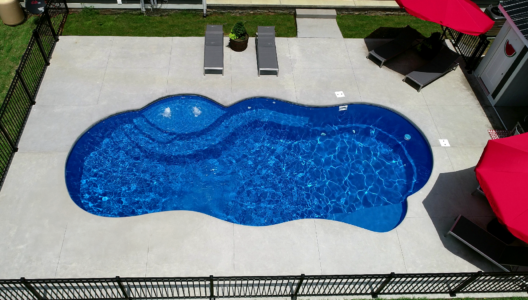

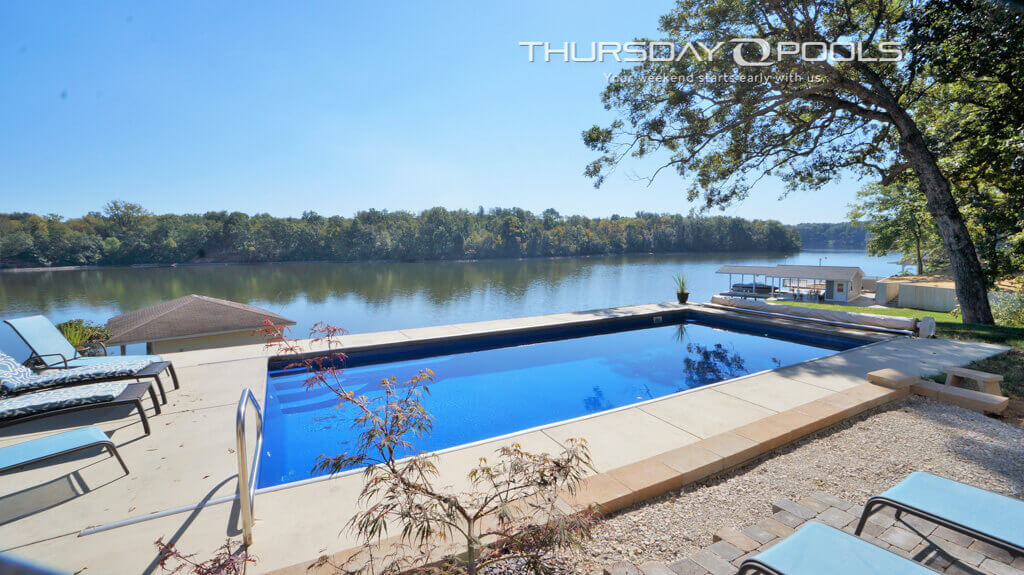

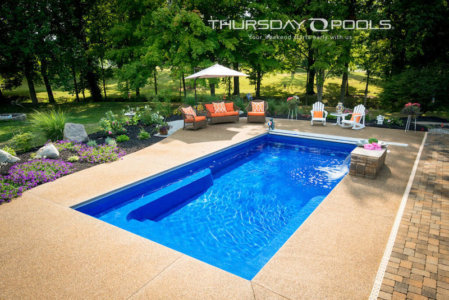
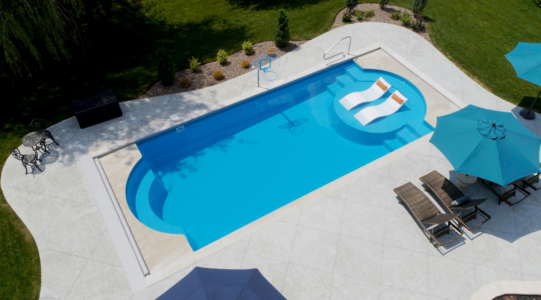
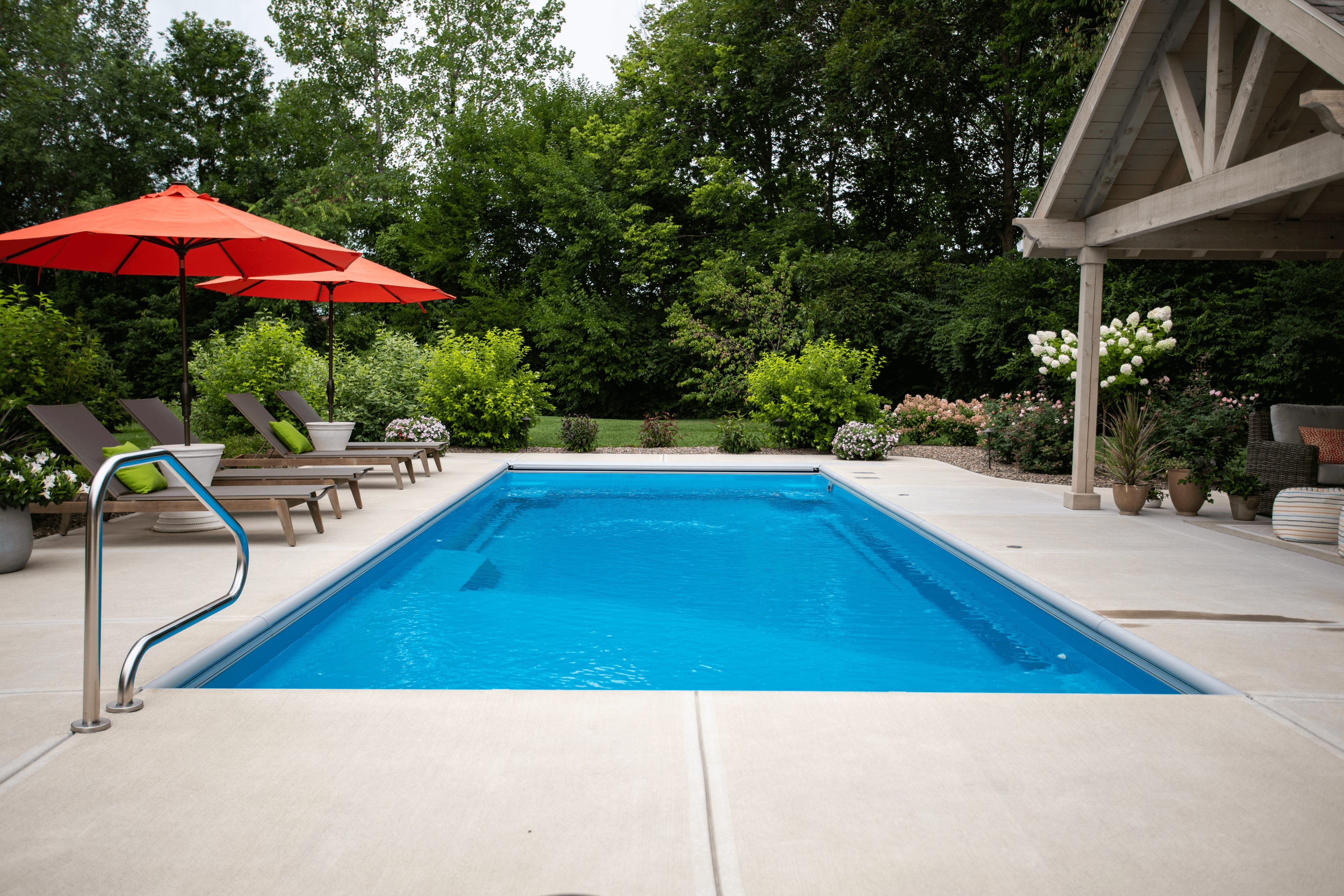
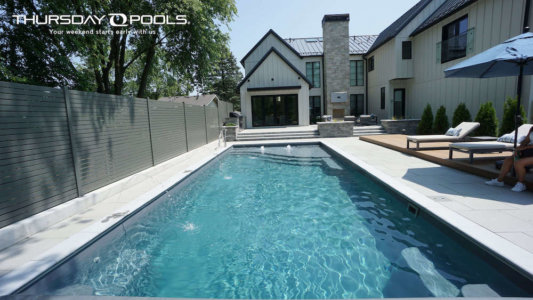
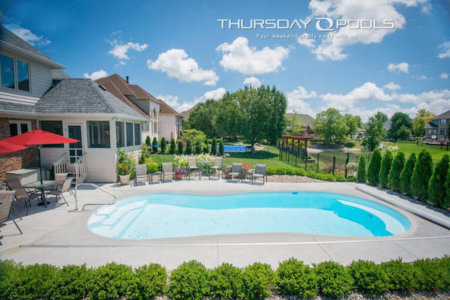
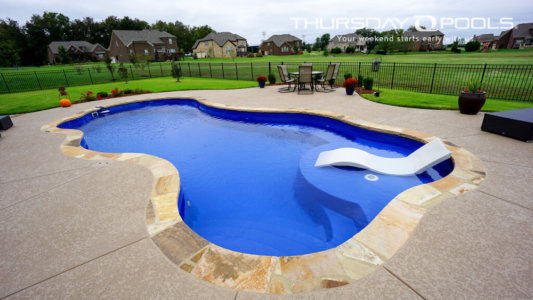
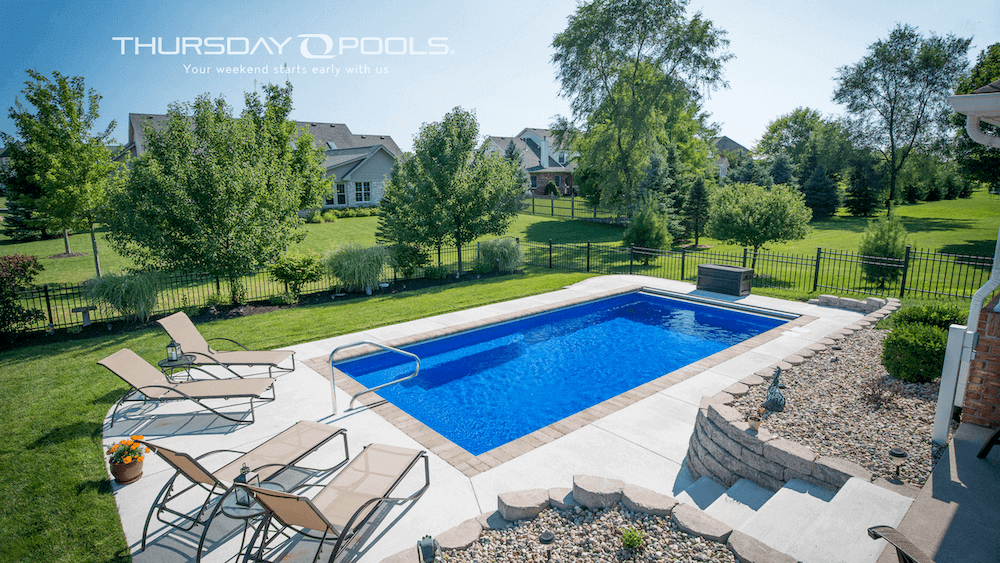
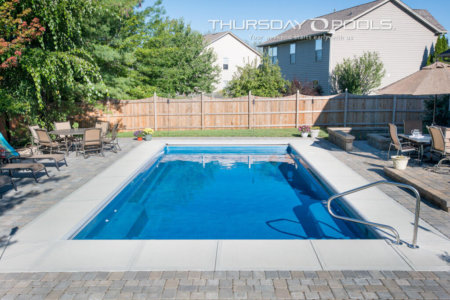
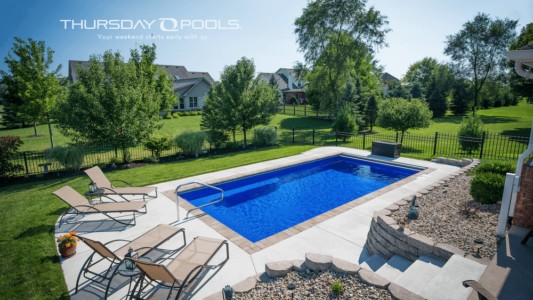
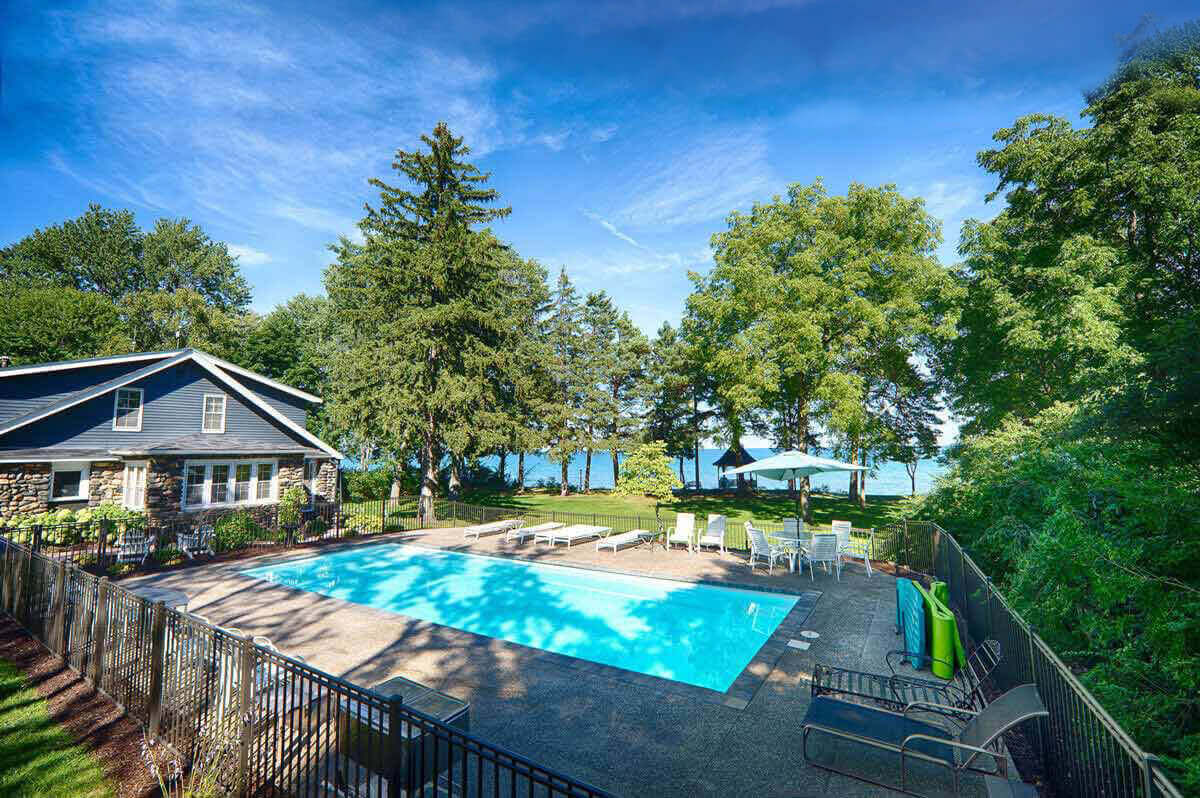
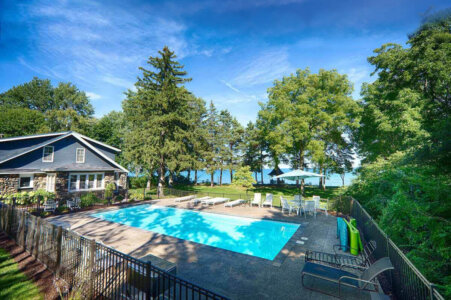 Choosing between a boat and a pool is personal—and there’s no one-size-fits-all answer. We sell fiberglass pools, so naturally, we’re partial to them. But if this is a decision you’re wrestling with—whether solo or with your significant other—read on for some honest, side-by-side info.
Choosing between a boat and a pool is personal—and there’s no one-size-fits-all answer. We sell fiberglass pools, so naturally, we’re partial to them. But if this is a decision you’re wrestling with—whether solo or with your significant other—read on for some honest, side-by-side info.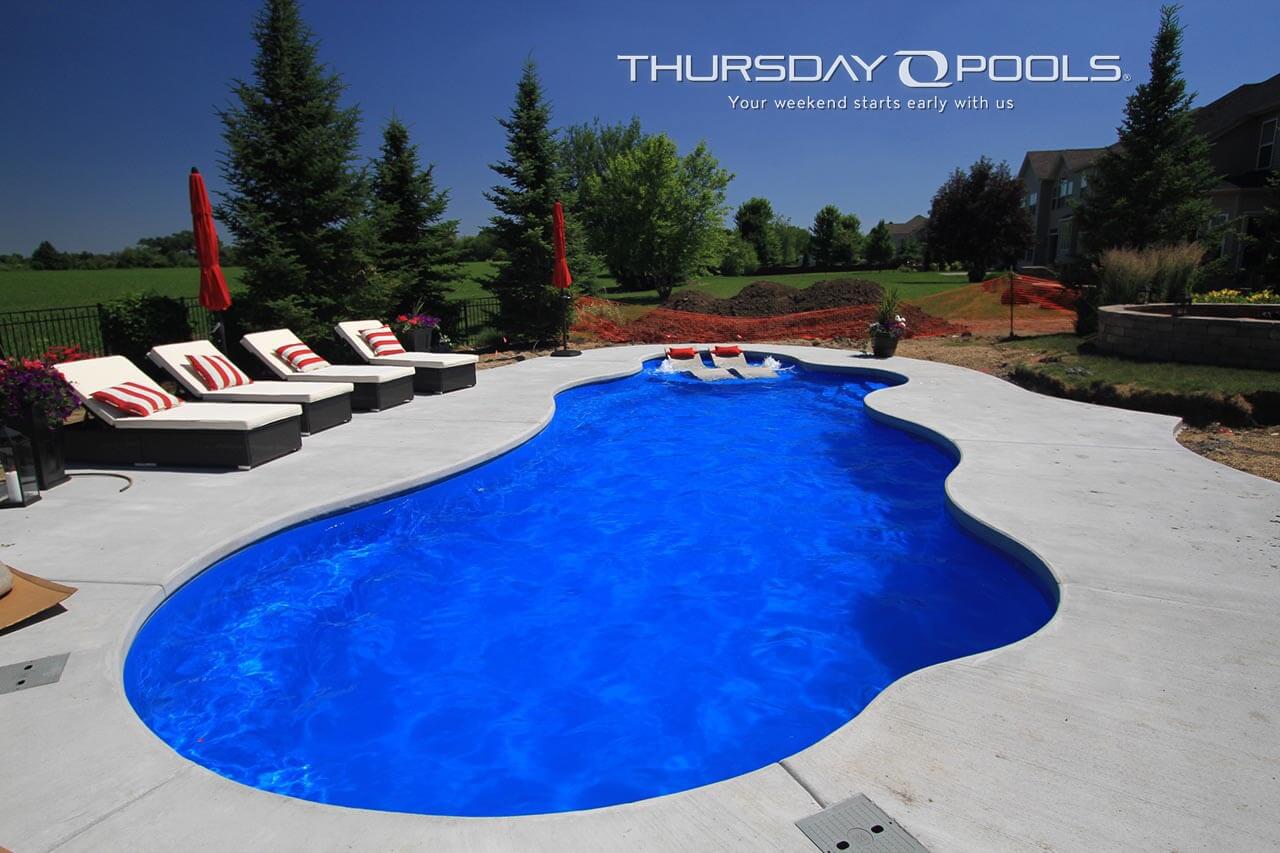
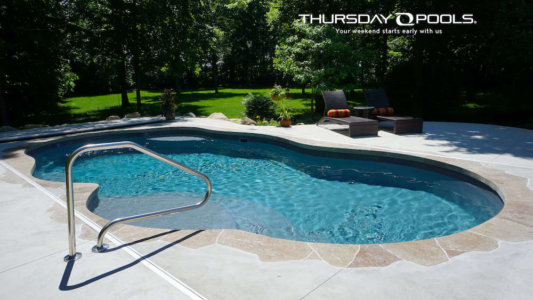
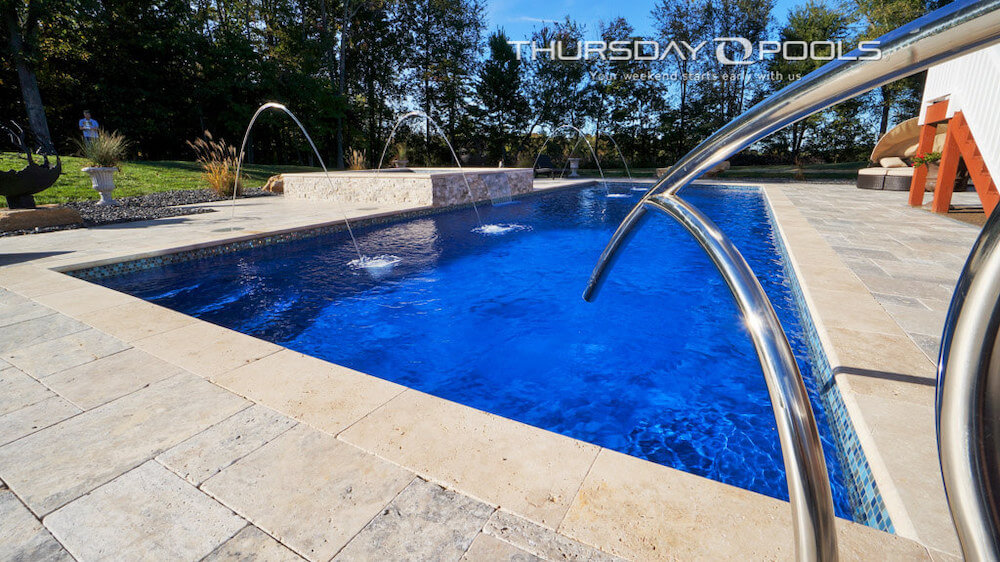


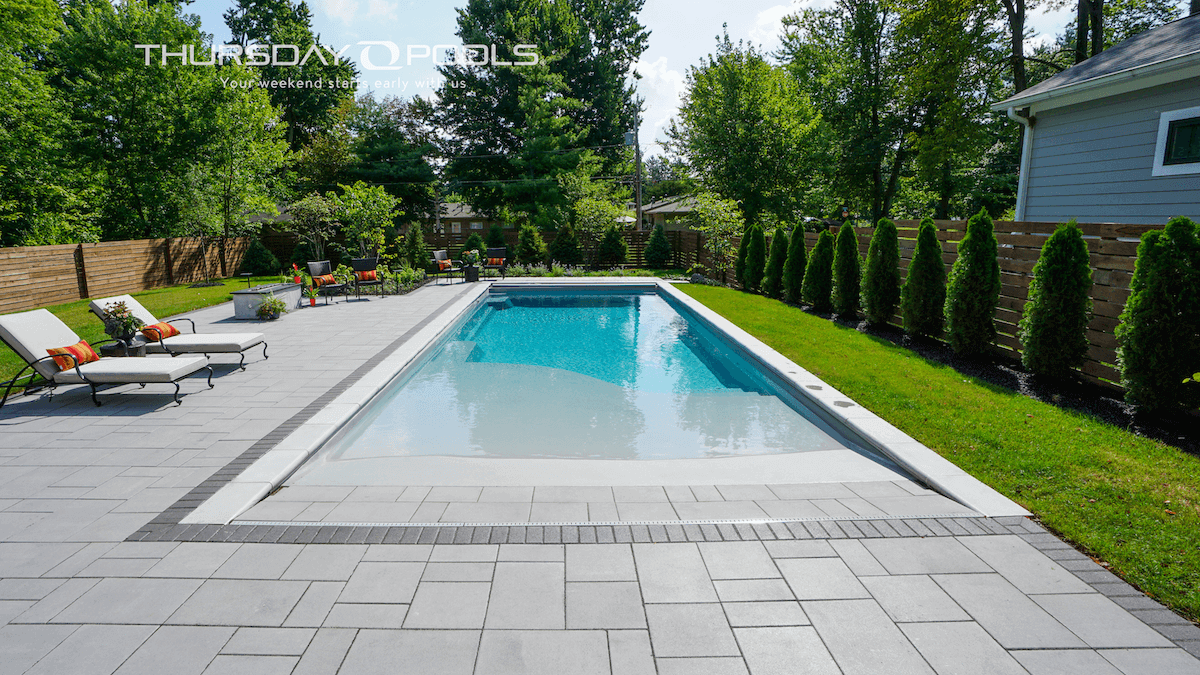
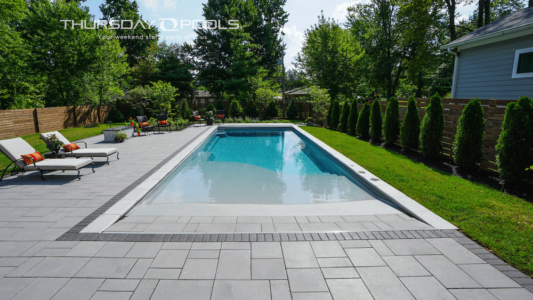 Perhaps you have always loved the aesthetic of a zero-entry pool, but you have heard it takes up too much space, so you’re also considering a tanning ledge fiberglass pool design. Choosing between a
Perhaps you have always loved the aesthetic of a zero-entry pool, but you have heard it takes up too much space, so you’re also considering a tanning ledge fiberglass pool design. Choosing between a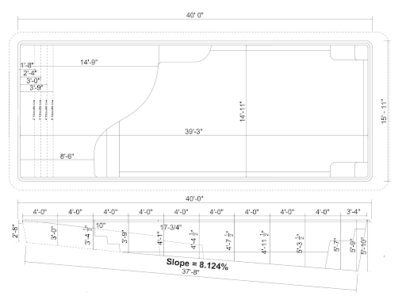
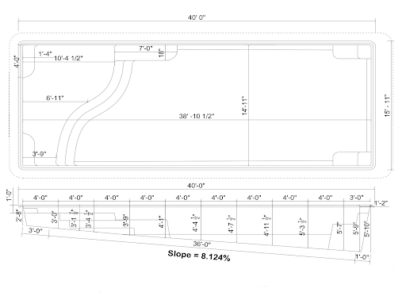
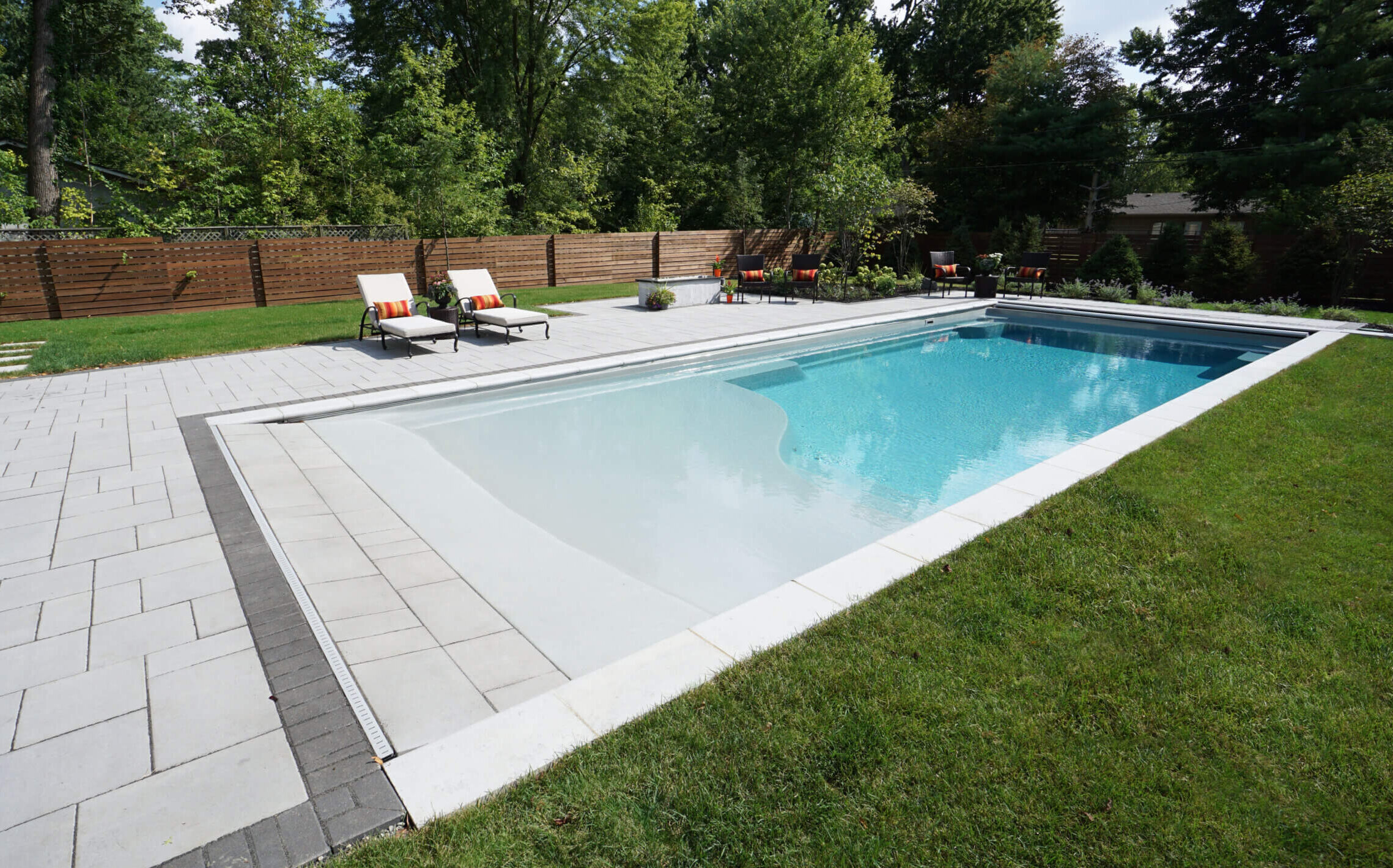
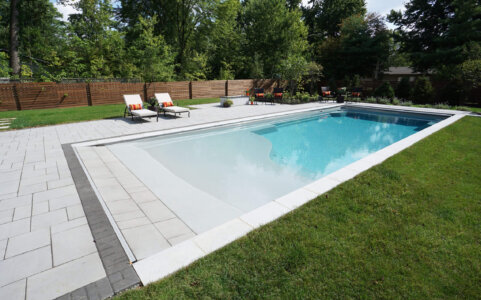 Installing a fiberglass
Installing a fiberglass